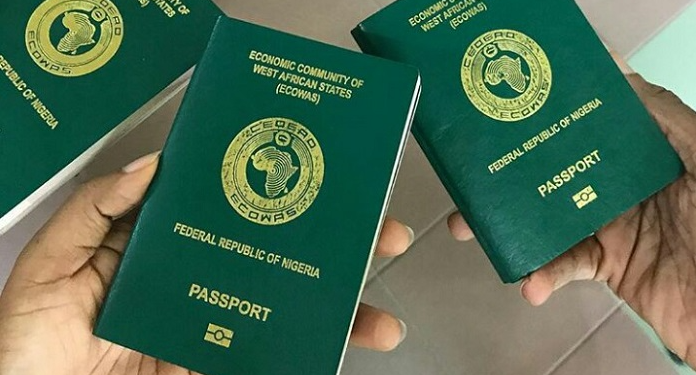The Nigeria Immigration Service (NIS) has announced a sweeping increase in the cost of Nigerian international passports, effective September 1, 2025. The new fee for a 32-page passport (5-year validity) will now be ₦100,000, while the 64-page variant (10-year validity) will cost ₦200,000, representing a full 100 % increase
Under the new regime, a 32-page passport with 5-year validity will now cost ₦100,000, while a 64-page passport with 10-year validity will go for ₦200,000. This represents a doubling of the previous rates of ₦50,000 and ₦100,000 respectively.
In a statement issued on Thursday, NIS Public Relations Officer, A.S. Akinlabi, explained that the new charges are part of a broader review aimed at sustaining the quality, security, and global acceptability of the Nigerian Standard Passport. He added that while the increment applies strictly to applications made within Nigeria, fees for passports issued in the diaspora remain unchanged — still pegged at $150 for the 32-page, 5-year passport and $230 for the 64-page, 10-year passport.
“The review… sets a new threshold for passport application fees in Nigeria. It is necessary to ensure that the production process remains sustainable while upholding global security and quality standards,” the NIS stated.
The announcement has triggered widespread shock and concern among Nigerians, many of whom fear the increase will worsen the cost burden of international travel. With unemployment at record levels and inflation eroding purchasing power, the decision comes at a time when millions of Nigerians particularly the youth, are seeking opportunities abroad through the migration trend popularly referred to as “Japa.”
Over the past few years, countries such as the United States, United Kingdom, Canada, and several European nations have become top relocation destinations for Nigerians seeking better education, jobs, and security.
According to World Bank 2023 data, Nigeria’s diaspora population contributes over $20 billion annually in remittances to the economy, making migration not just a social issue but also a significant economic factor.
The new passport fee hike has also reignited debates about the long-term impact of mass youth migration on Africa’s development. Outgoing President of the African Development Bank (AfDB), Dr. Akinwumi Adesina, has repeatedly warned that the Japa wave represents a “brain drain” that Africa cannot afford.
“We have over 465 million young people between the ages of 15 and 35. Africa must not turn what should be its demographic asset into somebody else’s problem,” Adesina cautioned.
“I do not believe that the future of our young people lies in Europe, America, Canada, Japan or China. It should lie in Africa, growing robustly and creating quality jobs for our young people.”
The NIS insists the review is necessary to maintain international credibility and service quality.










